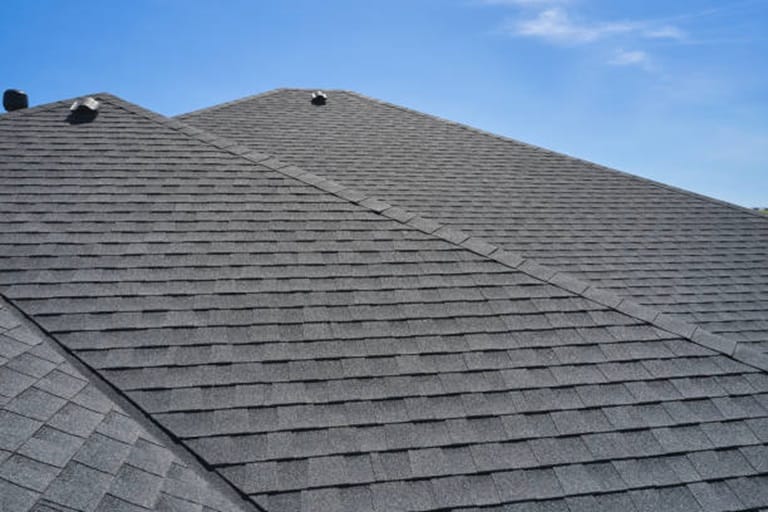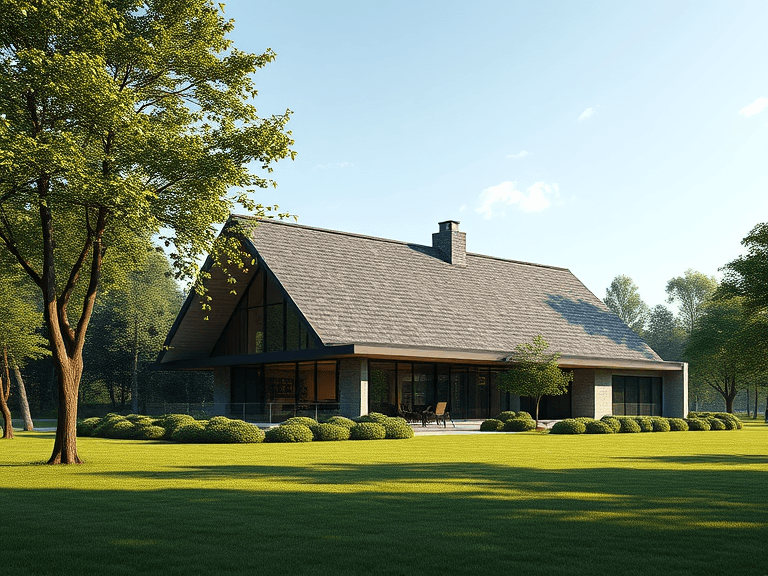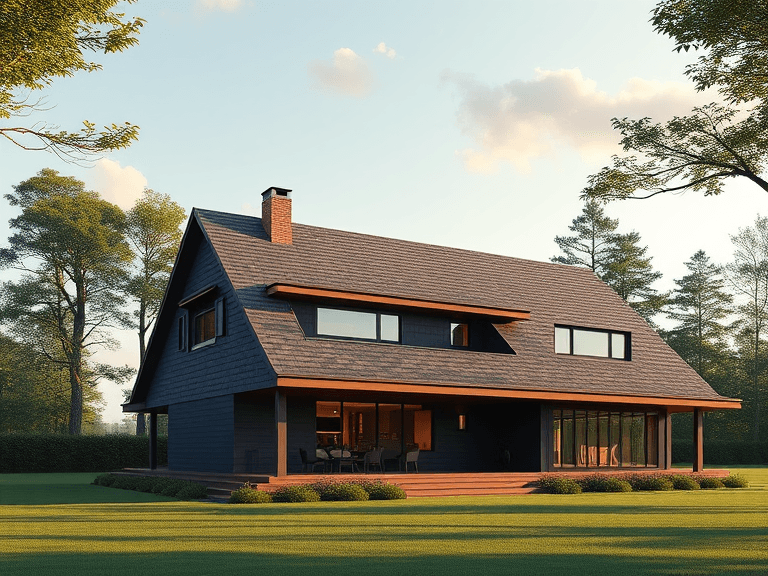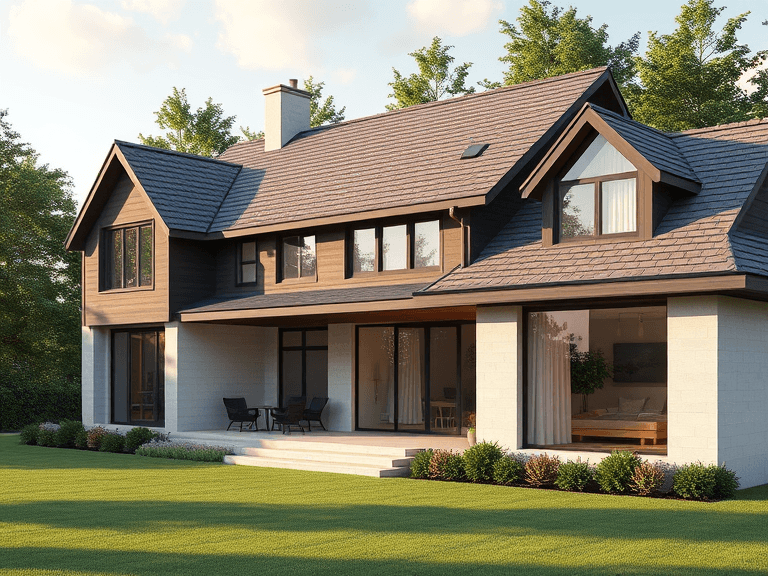
Asphalt shingles have emerged as one of the most popular roofing materials in residential construction. Their widespread usage can be attributed to several factors, including cost-effectiveness, ease of installation, and durability. The development of asphalt shingles dates back to the early 20th century, with the first types being manufactured from organic materials such as felt paper and asphalt. Over the years, advancements in technology and materials have led to the production of fiberglass shingles, which offer additional benefits in terms of fire resistance and longevity.
Manufactured primarily from a combination of asphalt, fiberglass, and granules, the shingles create a protective layer that enhances a roof’s lifespan while providing aesthetic appeal. These shingles are available in a variety of colors and styles, allowing homeowners to select a product that complements their home’s architecture. Furthermore, the versatility of asphalt shingles makes them suitable for various climates, contributing to their popularity across different regions.
The affordability of asphalt shingles stands out as a significant advantage; they offer a competitive price point compared to other roofing materials like metal or tile. This economic appeal, coupled with their easily manageable installation process, has led many homeowners to opt for asphalt shingles when replacing or installing a roof. Additionally, the availability of warranties can vary greatly, influencing purchasing decisions. As such, it is crucial to weigh the factors that contribute to asphalt shingles’ increasing prevalence and evaluate whether these roofing materials align with an individual’s specific needs and preferences.
Benefits of Asphalt Shingles
Asphalt shingles have gained considerable popularity as a roofing material due to their numerous advantages, making them a favored choice for homeowners and contractors alike. One of the key benefits of asphalt shingles is their cost-effectiveness. Compared to other roofing materials such as slate or metal, asphalt shingles are generally more affordable. This lower initial investment appeals to a wide range of budgets, often making it easier for homeowners to complete their roofing projects without overspending.
In addition to their affordability, asphalt shingles are appreciated for their ease of installation. Most contractors are familiar with working with asphalt shingles, which allows for faster and more efficient installation processes. This characteristic can minimize labor costs and reduce the time required to complete a roofing project, further underscoring the financial advantages.
Another major benefit is the wide range of styles and colors available with asphalt shingles. Homeowners can choose from a variety of options to complement their home’s architecture and aesthetic preferences. This versatility enables individuals to achieve the desired look for their homes while also enhancing property value. For instance, some homeowners have reported a significant improvement in their home’s curb appeal after installing new asphalt shingles.
In terms of durability, asphalt shingles perform well against various weather conditions, including rain, wind, and snow. High-quality shingles can last anywhere from 20 to 30 years, depending on the type selected. Furthermore, these shingles can also offer reasonable energy efficiency, potentially reflecting sunlight and keeping homes cooler during summer months. Lastly, asphalt shingles require minimal maintenance, making them an attractive option for those seeking long-term solutions without excessive upkeep.
Common Drawbacks of Asphalt Shingles
While asphalt shingles are widely favored for their cost-effectiveness and ease of installation, there are several drawbacks that potential users should consider. One major concern is their susceptibility to weather damage. Asphalt shingles can be vulnerable to strong winds, which may cause lifting, tearing, or even complete dislodgment. Additionally, hailstones can have a detrimental effect, leading to significant damage that could necessitate repairs or replacement. This susceptibility to extreme weather conditions can potentially shorten the already limited lifespan of asphalt shingles.
In comparison to other roofing materials such as metal or slate, asphalt shingles generally have a shorter lifespan, averaging between 15 to 30 years. This relatively brief duration can be a disadvantage for homeowners seeking a long-term investment. Therefore, the need for periodic replacement may not only incur additional costs but also require ongoing maintenance, which can be inconvenient.
Environmental concerns associated with asphalt production and disposal are also notable drawbacks. The manufacturing process of asphalt shingles involves petroleum-based products, contributing to pollution and depletion of natural resources. Once these shingles reach the end of their life cycle, they often end up in landfills, leading to further environmental degradation. Moreover, asphalt shingles can contribute to urban heat islands through heat absorption, elevating local temperatures.
Another issue homeowners may face is the potential growth of algae and moss on asphalt shingles over time. This growth not only affects the aesthetic appeal of the roof but can also lead to further damage by trapping moisture, which may accelerate deterioration. Some manufacturers have started to address this concern with algae-resistant products; however, it remains a relevant drawback that should be considered during the installation process.
Cost Analysis: Installation and Long-term Expenses
The financial implications of installing asphalt shingles are significant when considering both initial and long-term expenses. The primary advantage of asphalt shingles is their relatively low installation cost compared to alternative roofing materials. On average, homeowners can expect to pay between $90 to $100 per square for asphalt shingles, while materials such as metal or tile can range between $250 to $1000 per square. This cost-effectiveness makes asphalt shingles a popular choice for budget-conscious homeowners.
Aside from initial installation costs, long-term expenses associated with asphalt shingles must also be evaluated. Asphalt shingles typically have a lifespan of about 20 to 30 years, depending on the quality and maintenance. Over the years, they require periodic maintenance and, on occasion, repairs, especially after severe weather events. These maintenance costs are generally lower than those for more durable materials, such as slate or metal, which may require less frequent repairs but have higher upfront costs.
Furthermore, if damage occurs, asphalt shingles are often easier and less expensive to replace than other roofing systems. The repair process for asphalt shingles usually involves replacing only the damaged section rather than the entire roof, providing a cost advantage. However, it is vital for homeowners to factor in potential costs from various seasons, as the risk of wear and tear can fluctuate based on the local climate, leading to maintenance requirements that vary over time.
When assessing the total economic impact of an asphalt shingles installation, it is crucial to think about their affordability upfront and the associated long-term maintenance and repair costs. While asphalt shingles serve as a financially viable option in the short term, homeowners should anticipate potential long-term expenses to make a fully informed decision.

Installation Process: What to Expect
The installation process of asphalt shingles is a structured procedure that requires careful planning and execution. First and foremost, homeowners should gather the necessary materials, which include asphalt shingles, roofing felt, nails, and flashing. It is essential to select high-quality shingles that meet local building codes to ensure durability and performance. Additionally, tools such as a ladder, a nail gun, and safety gear are crucial for a successful installation.
Before commencing the project, it is important to assess the weather conditions. Installing asphalt shingles in wet or extremely cold weather can compromise the effectiveness of the roofing system. It is advisable to wait for a clear forecast to ensure optimal adhesion and performance of the shingles. Homeowners should also check their roofing structure for any damages or rot that may require repairs prior to installation, thereby preventing future issues.
The actual installation begins with the removal of any old roofing materials, ensuring a clean surface. Next, roofing felt is laid to provide an additional water barrier. Starting from the bottom edge of the roof, the shingles are installed in overlapping rows, securing each one with nails. It is vital to follow the manufacturer’s guidelines regarding nail placement and spacing to maintain the warranty.
As the process continues, additional elements such as ridge caps are placed to provide protection against water penetration. The entire installation may take several days, depending on the size and complexity of the roof. Throughout this period, safety should be a priority. Proper harnessing and equipment usage are essential to prevent accidents from occurring.
By understanding these steps and making the necessary preparations, homeowners can facilitate a smooth and effective asphalt shingles installation, setting the stage for a reliable roofing solution.
Climate Considerations for Asphalt Shingles
Asphalt shingles are one of the most popular roofing materials used in residential construction. However, their performance can be significantly influenced by the climate in which they are installed. It is essential to provide an examination of the benefits and drawbacks of asphalt shingles installation while paying close attention to various weather conditions that can affect their longevity and effectiveness.
In regions characterized by extreme heat, asphalt shingles may be subjected to accelerated degradation. High temperatures can cause the materials to become brittle, leading to cracks and loss of granules. This breakdown not only affects the aesthetics but can also compromise the roof’s ability to protect against leaks and other hazards. To mitigate these issues, homeowners in warmer climates should consider using reflective shingles, which can help reduce heat absorption and prolong the roof’s lifespan.
Conversely, in colder climates, asphalt shingles can be prone to issues like ice damming. In these regions, snow accumulation and inadequate drainage may lead to water backup, which can cause shingles to lift and allow water infiltration. The use of underlayment systems and proper ventilation is critical in such areas to ensure that the roofing system performs effectively. Additionally, selecting shingles designed for cold weather conditions can significantly enhance durability and functionality.
Frequent storms, particularly in coastal areas, present another challenge for asphalt shingles. High winds can dislodge shingles, leading to serious structural damage. Homeowners in these parts should consider installing impact-resistant asphalt shingles, which are engineered to withstand harsh weather conditions better than standard options. In conclusion, while asphalt shingles offer many benefits, their suitability is heavily contingent upon the local climate. Careful consideration of weather factors and the installation of appropriate materials can help ensure a successful roofing project.
Environmental Impact of Asphalt Shingles
The environmental footprint of asphalt shingles is a critical consideration in the roofing industry, particularly concerning their production, durability, and end-of-life disposal options. The manufacturing process for asphalt shingles involves the use of non-renewable resources, primarily petroleum, which can lead to significant carbon emissions. Furthermore, the extraction and refinement of these materials can deplete natural resources, raising concerns about sustainability.
Despite these issues, asphalt shingles are known for their durability, often lasting between 20 to 30 years. This longevity can contribute positively from an ecological standpoint by reducing the frequency of roof replacements, thereby limiting the cumulative environmental impact of materials used over time. However, when it comes to the end of their lifecycle, asphalt shingles present a considerable challenge. Most discarded shingles end up in landfills, where they contribute to waste and pose potential environmental hazards.
Fortunately, there are burgeoning recycling initiatives aimed at mitigating this impact. Asphalt shingles can often be reused in new roofing projects, asphalt pavement applications, or as road base material. Some regions are actively promoting programs that facilitate the recycling of old shingles, which not only decreases landfill contributions but also conserves resources by reducing the need for virgin materials. Additionally, innovative alternatives, such as eco-friendly shingles made from recycled materials or other sustainable components, are gaining traction. These products promise to offer better environmental outcomes without sacrificing performance.
In conclusion, while there are considerable benefits associated with asphalt shingles installation, it is imperative to acknowledge their environmental impact. By considering recycling options and exploring alternative materials, homeowners and contractors can play a role in fostering more sustainable roofing practices. Understanding the advantages and disadvantages surrounding asphalt shingles will yield a well-rounded perspective that aids in making informed decisions in roofing installations.
Comparing Asphalt Shingles to Other Roofing Materials
When considering roofing options, asphalt shingles often come up as a popular selection. However, it is essential to conduct a comparative analysis between asphalt shingles and other prevalent roofing materials such as metal, wood, tile, and slate to ascertain their relative merits and demerits. Each of these options presents distinct advantages and drawbacks that may influence a homeowner’s decision.
Metal roofing is known for its remarkable durability and lifespan, outlasting asphalt shingles significantly. While asphalt shingles typically last 15 to 30 years, metal roofs can endure for upwards of 50 years. However, the installation cost of metal roofs is substantially higher and may necessitate professional expertise, contrasting with asphalt shingles that offer a more straightforward installation process and lower initial investment.
Wood shingles provide a charming aesthetic that appeals to many homeowners. They can enhance the visual appeal of a home, particularly in rustic or traditional designs. Nevertheless, wood requires regular maintenance to preserve its condition, and does not perform well in damp climates, making it less suitable compared to asphalt shingles, which are versatile in various weather conditions.
Tile roofing, often identified with Mediterranean or Spanish-style homes, is another alternative that boasts impressive longevity and energy efficiency. However, its heavy weight demands a sturdier structural support, potentially increasing the installation costs. Asphalt shingles generally possess greater compatibility with standard building structures. Slate roofs are highly durable and boast exceptional longevity, yet they also come with a hefty price tag, overshadowing the affordability of asphalt shingles.
In summary, when comparing asphalt shingles to roofing alternatives like metal, wood, tile, and slate, it becomes clear that while asphalt shingles offer cost-effective installation and adequate durability, the choice ultimately depends on homeowners’ priorities regarding aesthetics, climate suitability, and long-term investment considerations.
Conclusion and Final Recommendations
Throughout this blog post, we have conducted a comprehensive examination of the benefits and drawbacks of asphalt shingles installation. This popular roofing option is often chosen for its balance of affordability, durability, and aesthetic appeal. However, understanding both the advantages and disadvantages is essential for homeowners to make an informed decision that aligns with their specific needs.
On the positive side, asphalt shingles are relatively inexpensive compared to other roofing materials, making them an attractive option for budget-conscious homeowners. They are also easy to install, which can reduce labor costs and time. Furthermore, modern asphalt shingles are available in a variety of colors and styles, enabling homeowners to select a look that complements their property’s architecture. Additionally, when properly installed and maintained, asphalt shingles can last for 20 to 30 years, providing a reasonable lifespan for a roofing material.
Conversely, there are noteworthy drawbacks associated with asphalt shingles installation. For instance, they may not perform as well in extreme weather conditions compared to materials like metal or tile. Asphalt shingles are also susceptible to damage from high winds, hail, and excessive heat, which may reduce their longevity in certain climates. Moreover, while installation can be straightforward, the need for periodic maintenance and potential repairs can add to the total cost over time.
In conclusion, homeowners should carefully weigh the aforementioned benefits and drawbacks of asphalt shingles installation before making a decision. Factors such as local climate, budget, and personal style preferences play a significant role in determining whether asphalt shingles are the right choice. By understanding the unique aspects of this roofing material, homeowners can choose a solution that meets their needs and provides satisfaction for years to come.




